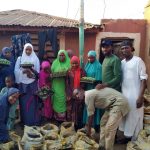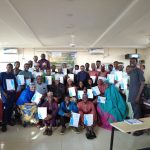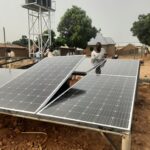
AMBASSADE DE FRANCE AU NIGÉRIA FUNDED AGROFORESTRY PROJECT
Rural Agriculture, according to the Food and Agriculture Organisation of the United Nations (FAO), represents the economic foundations of the livelihoods of over 2 billion people world wide, their source of daily food, sustenance, and income.
In late March of 2022, the French Embassy in Nigeria announced a list of five civil society organisations (CSOs) as 2022 laureates for the PISCCA programme (Innovative Projects from Civil Societies and Coalition of Actors). The main objective of the PISCCA programme is to support CSOs in Nigeria to implement projects aimed at reducing gender inequality, combating climate change and strengthening the capacity of the CSOs through training and networking.
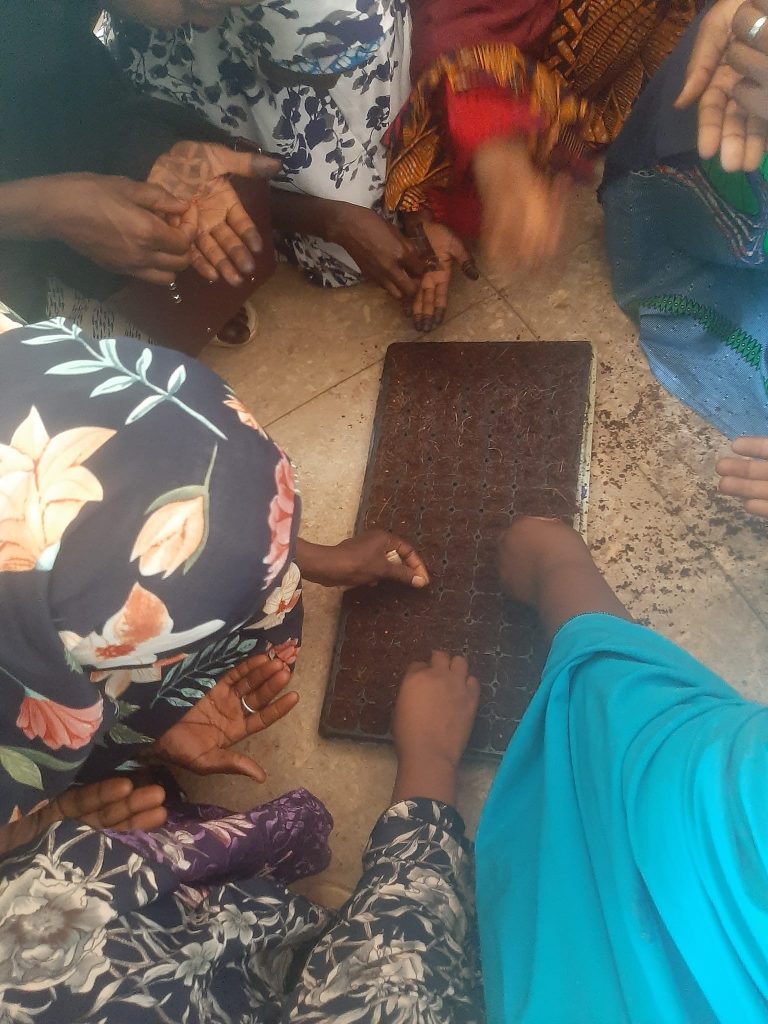
Our centre was part of the five CSOs selected for the program. And by April 1, we, in collaboration with the Association of Northern Women Entrepreneurs (ANWE), launched the project.
By May, work had already started for the establishment of Agroforestry and Environmental Conservation Training Centre where over 500 farmers, mostly women, would be trained and provided with equipment on organic farming, home gardening, and sustainable agroforestry. This is geared towards improving food security, reversing the menace of desertification and addressing climate change in, especially, Sokoto State. Aminu Gulumbe of East-West Seed took our group heads for training on theoretical aspects of home gardening for women on plants’ diseases and how to get the best from onion and watermelon farming.
In the same week, we also trained the groups heads on home gardening, tree propagation and organic farming. These groups’ heads were to step down the training to, and for, over 500 women and farmers expected to produce tomatoes, cucumbers, onions and carrots from their homes to reduce poverty & malnutrition. They were also taught how to use planting media and planting trays, how to make organic manures, and how to transplant their plants into sacks.
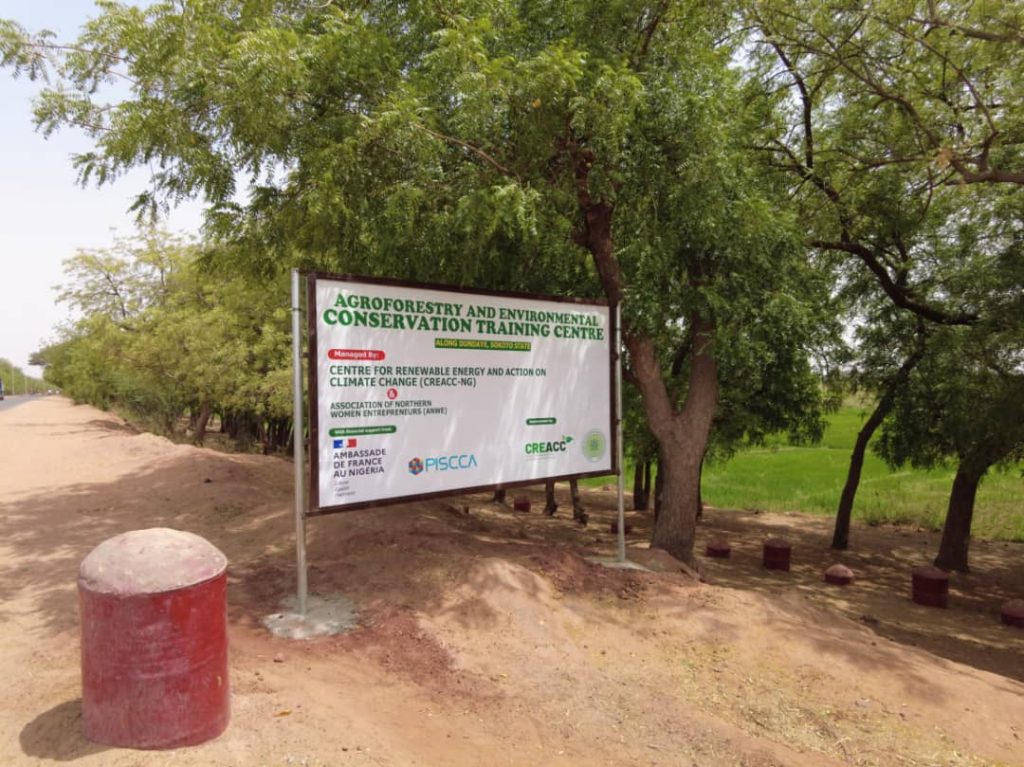
By mid-June, the women had started transplanting their plants. At the same time, meanwhile, we also installed solar panels in the agroforestry training centre. The panels had the capacity of pumping over 11,000 litres of water in every 4 hours to our plants in the training centre as well as other neighbouring farms. The solar water pumping system would, ultimately, help wipe out diesel generators in the area thereby reducing pollution and noise. Vis-à-vis, the distributions for agricultural implements continued.
All Categories
Recent Posts
AMBASSADE DE FRANCE AU NIGÉRIA FUNDED AGROFORESTRY PROJECT
2-DAY WORKSHOP FOR SUSTAINABILITY AMBASSADORS
Village Solar powered Smart Outreach Centre (VSSOC)
+0123 (456) 7899
contact@example.com

